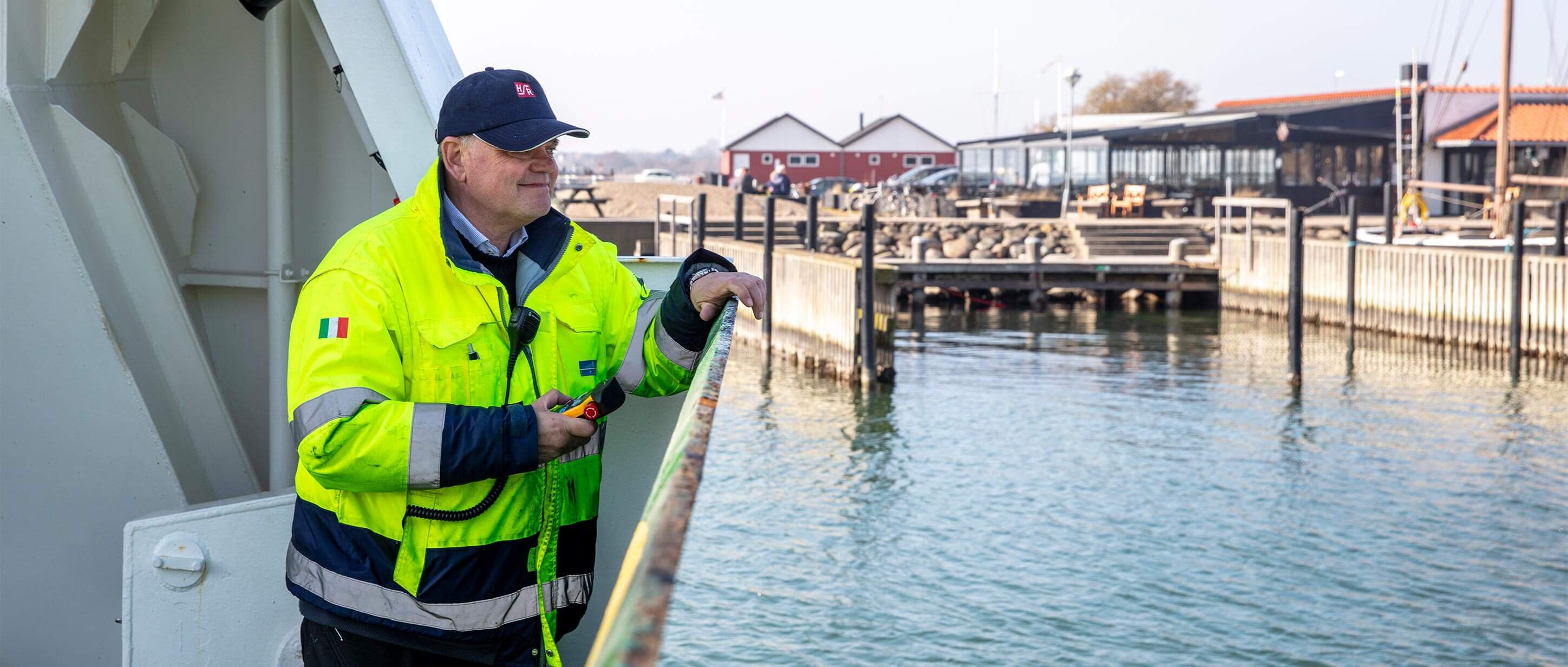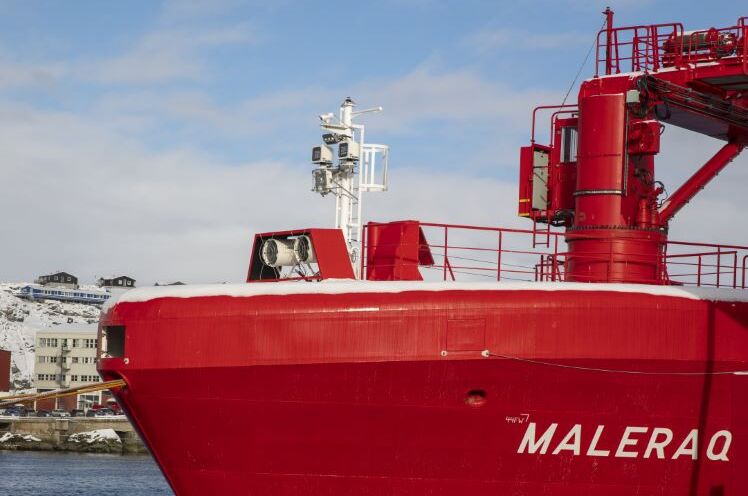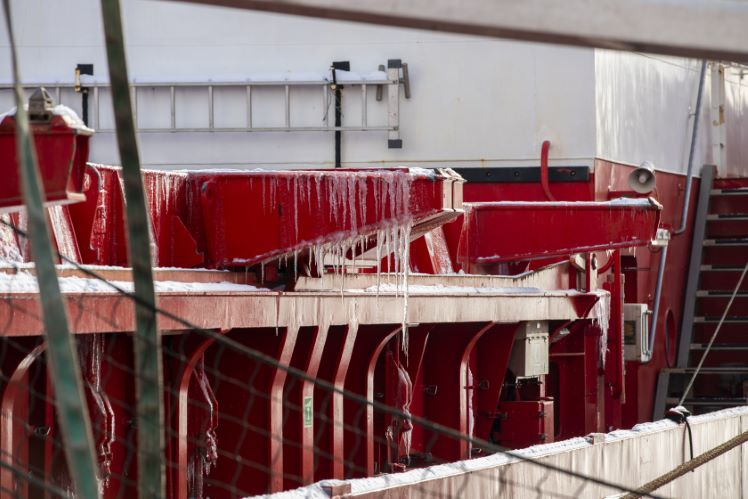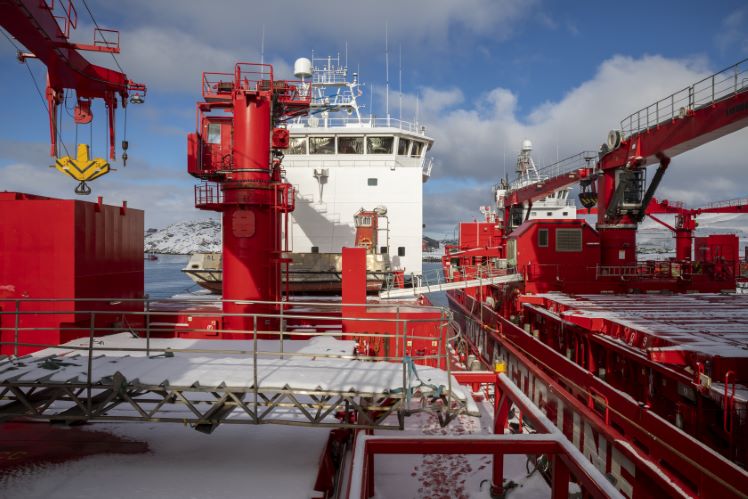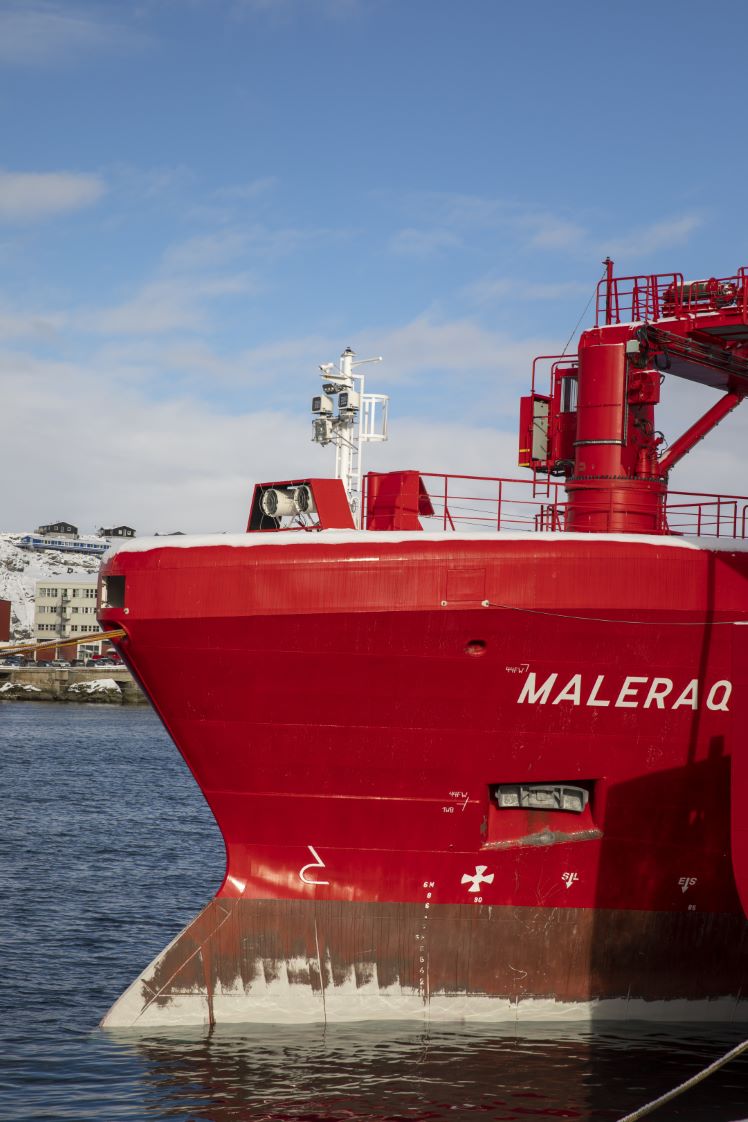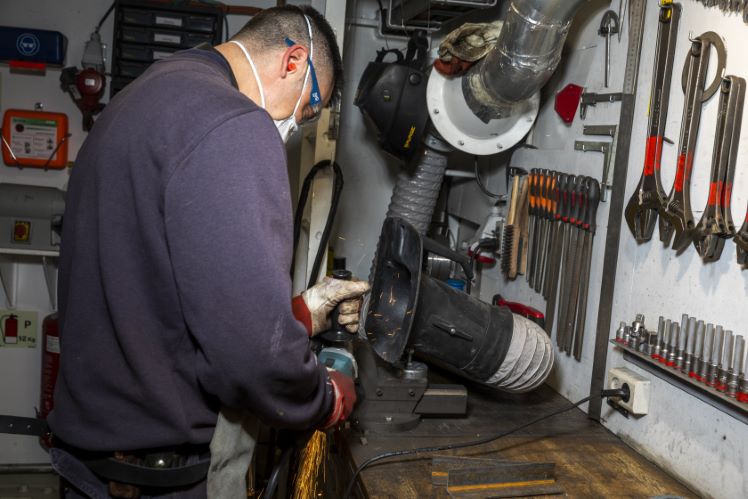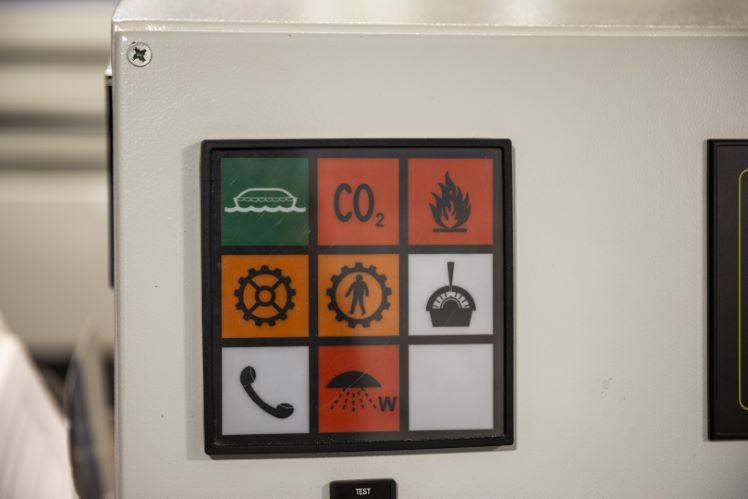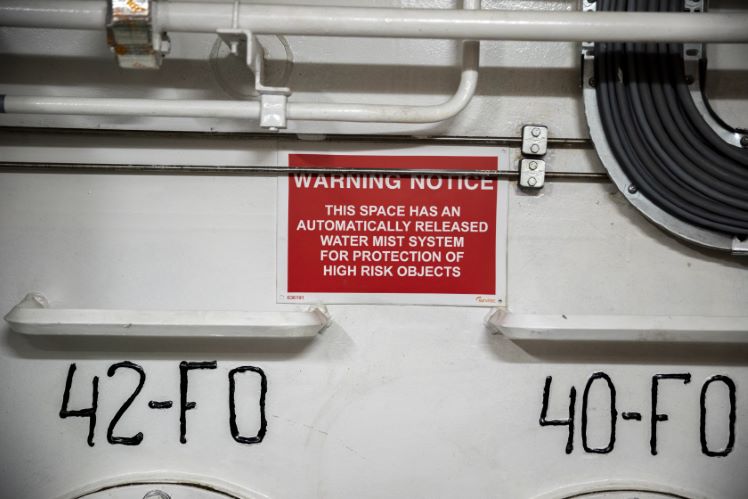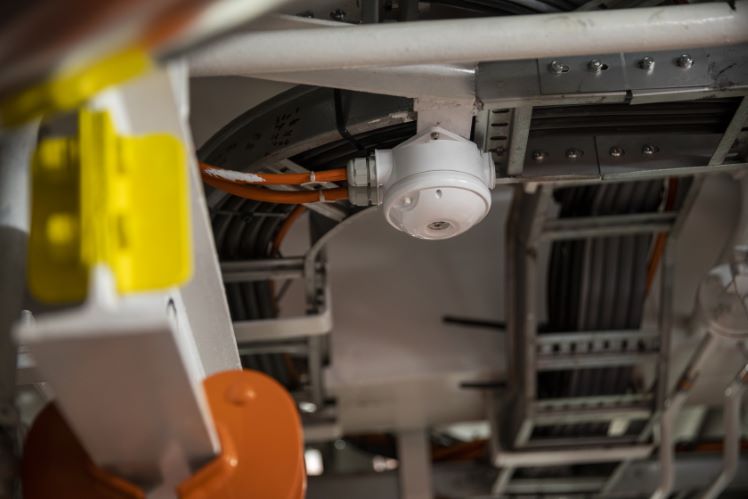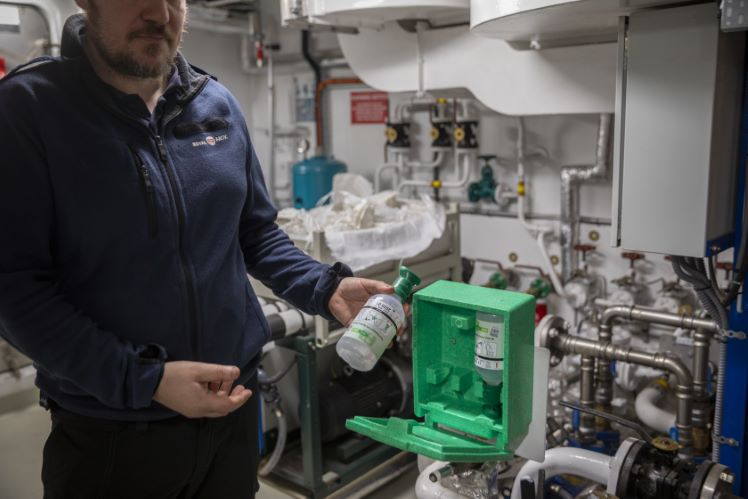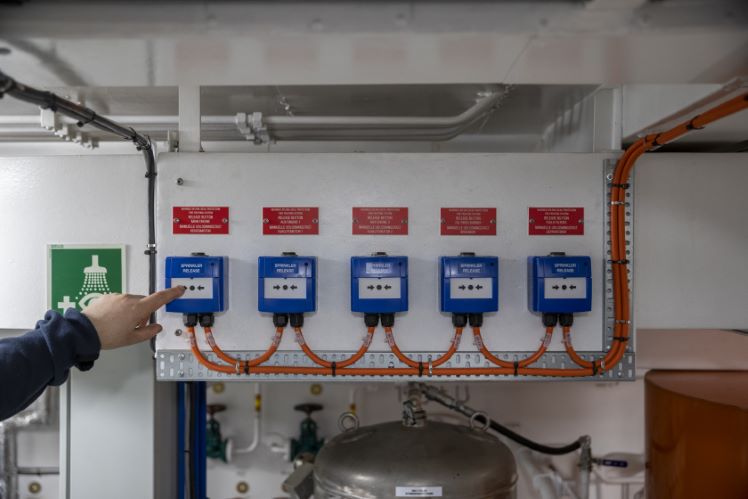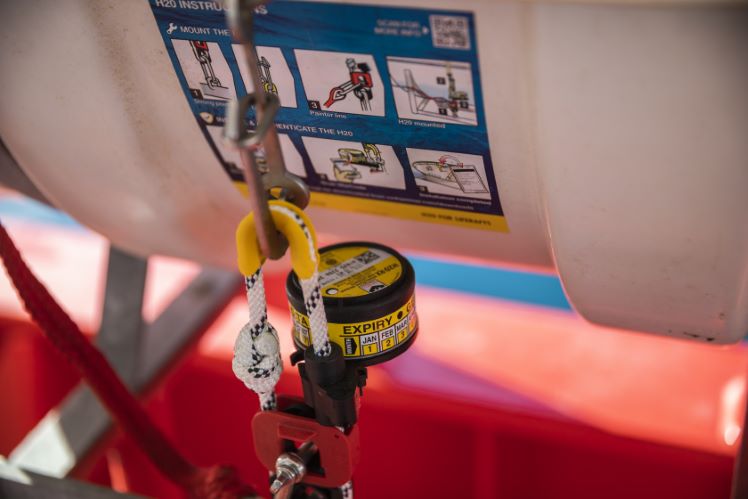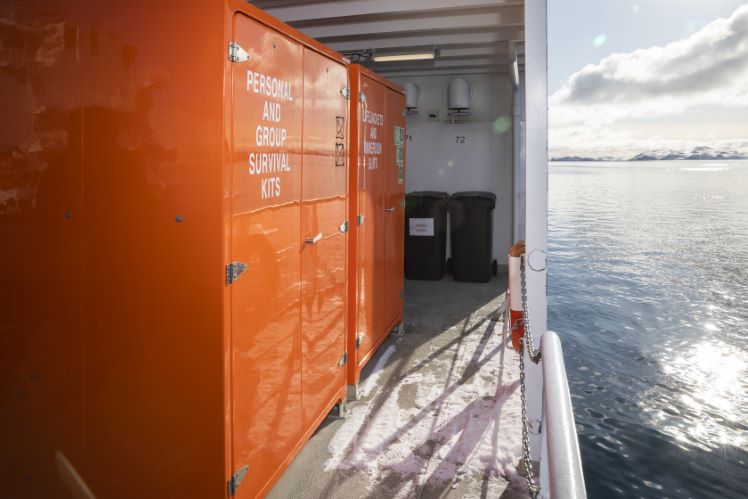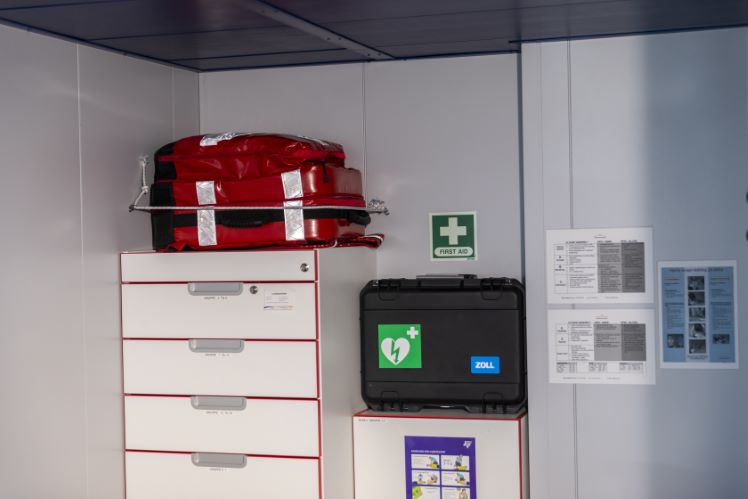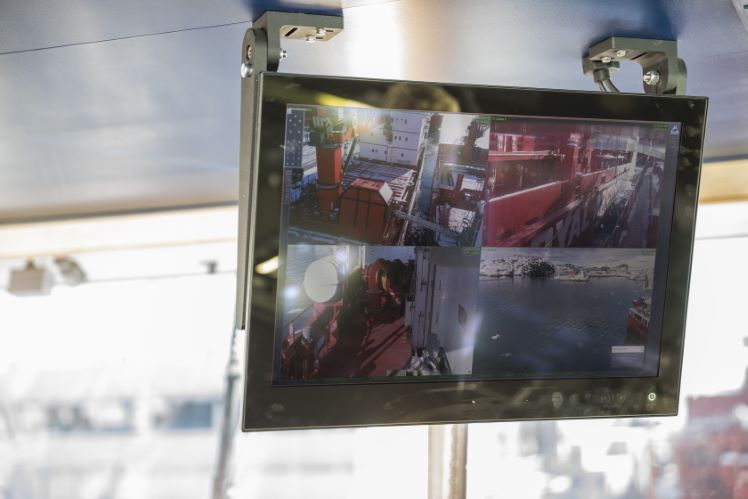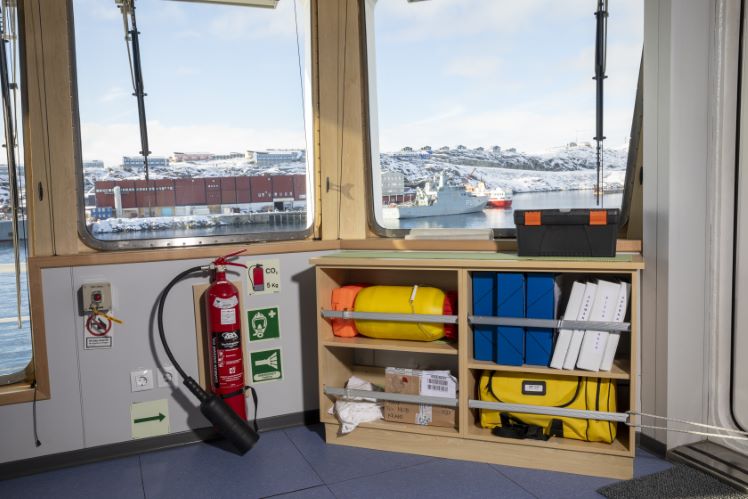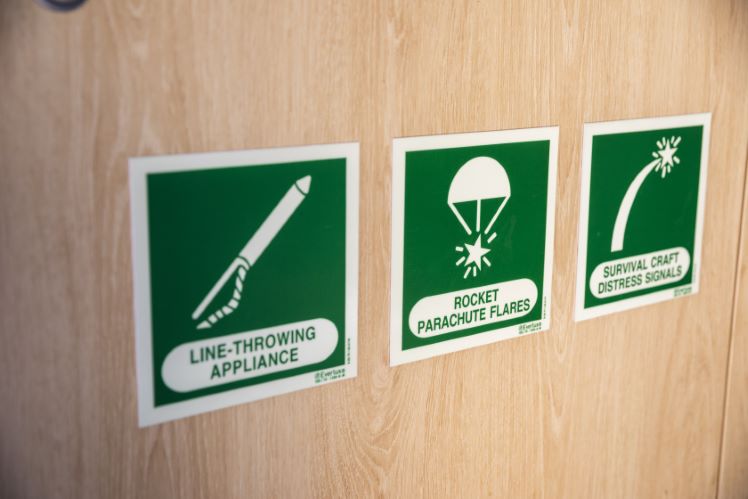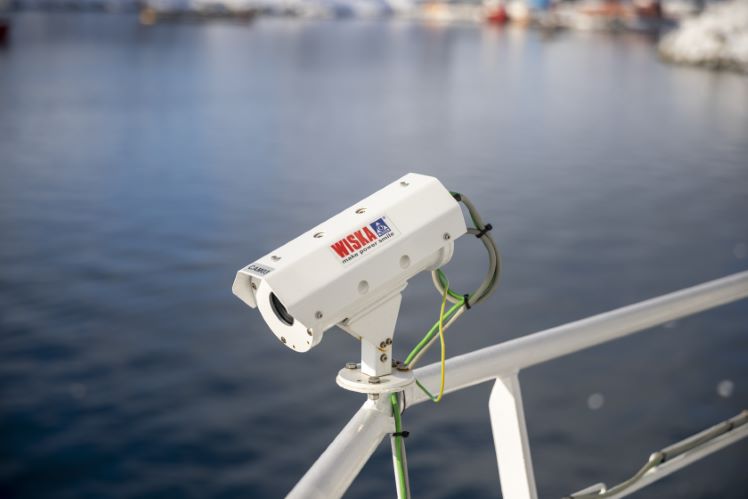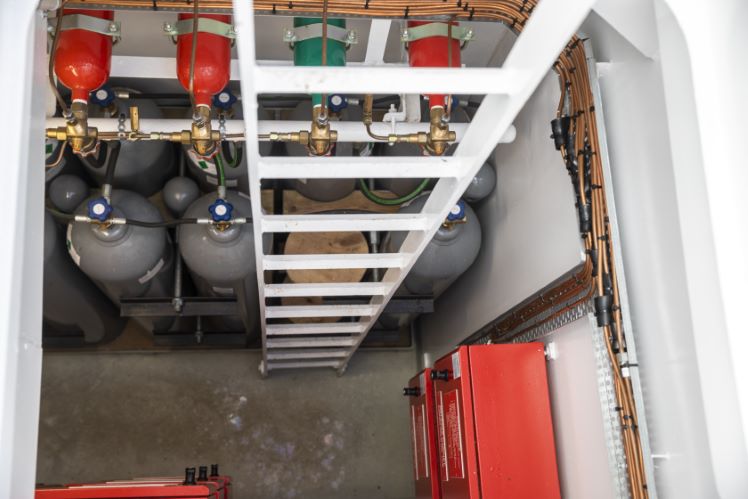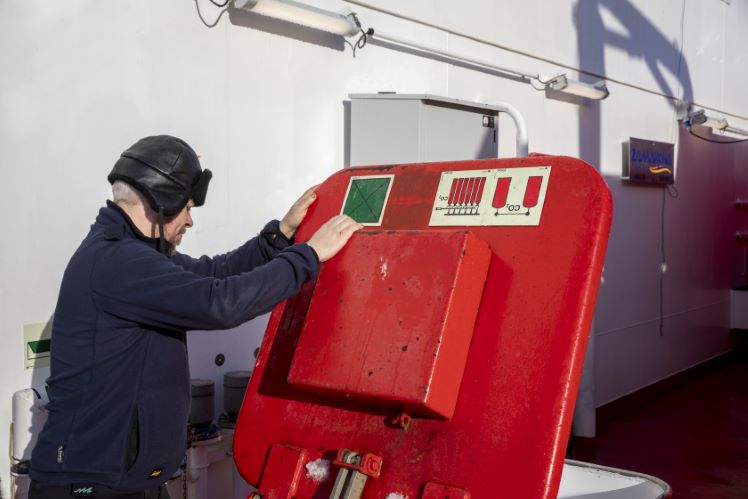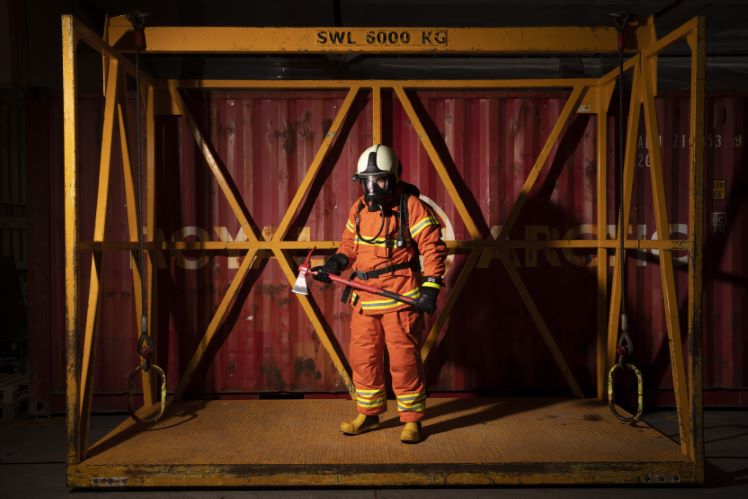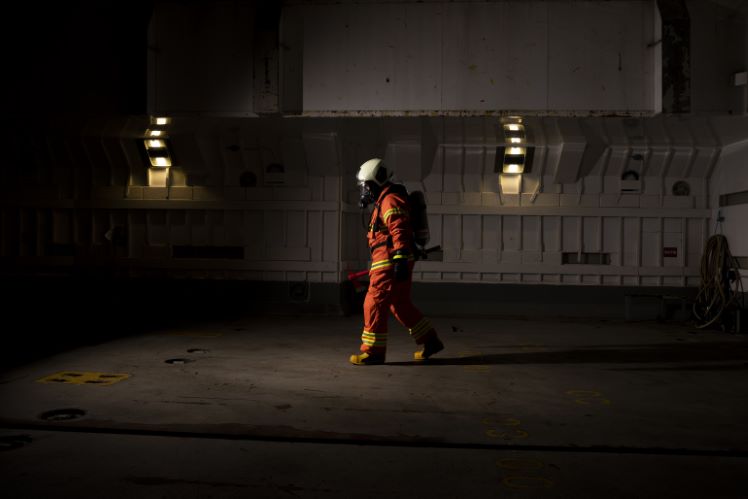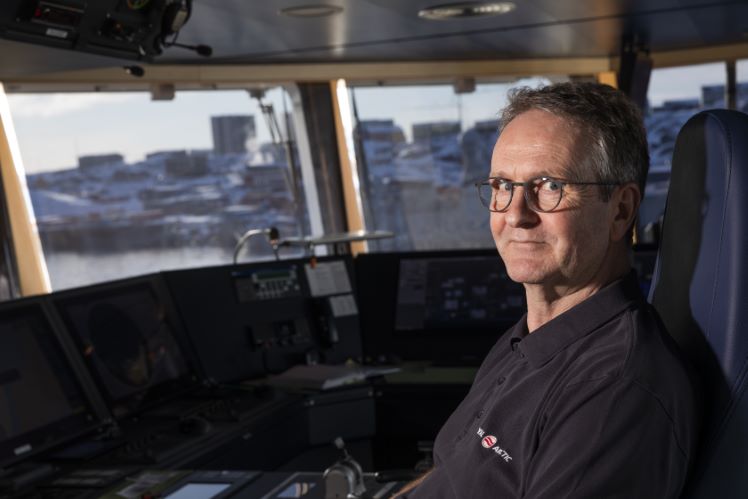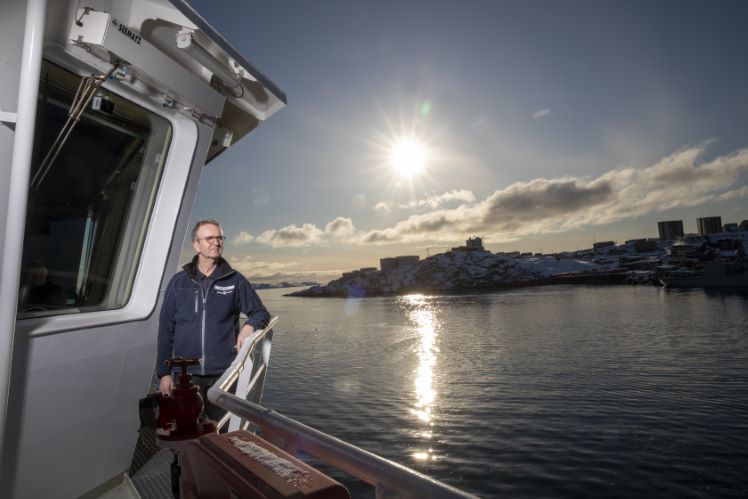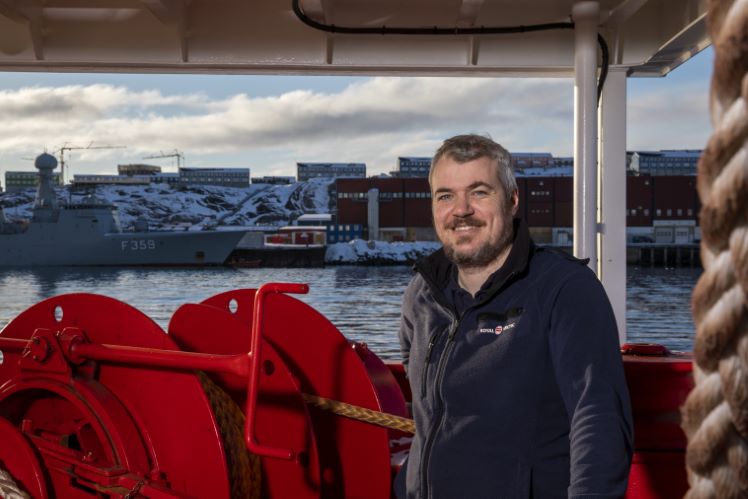Both the physical and the psychological working environment are in focus at Maleraq Arctica, where common sense and responsibility for oneself and each other are key elements in safety on board the ship, which is among the lifelines for the small communities along the Greenlandic coasts.
Although the dimensions are somewhat smaller than those of its 'big sister' Tukuma Arctica – or for that matter in other shipping companies such as Maersk – safety is still a big factor on board Maleraq Arctica, which is one of Royal Arctic Line's six settlement ships serving the small communities on Greenland's west coast.
The small vessel measuring 67 meters in length can carry 55 TEU (of which up to 36 are reefers), although she often hauls general cargo that is easier to deliver to the settlements. For this purpose, the 12-man crew can use the ship's two deck cranes, capable of moving between 20 and 35 tons with a reach of up to 19.5 meters.
In the crew mess, UFDS meets master Jørgen Kjær Jensen and 2nd engineer Casper Stibolt, who talk about the many safety considerations that are imperative at sea and not least in the Arctic climate, the importance of which the people at Mary Arctica have also emphasized.
»Safety is the basis of everyday life. All actions are in some way safety assessed. We don't sail unless we think it's safe, and we don't work unless we think it's safe. Everything is bound by people returning home without injury,« Jørgen Kjær Jensen says of the overall ideas.
»Everything related to PPE, fall protection, life jackets and so on is something we are very keen on keeping available here, it can’t be missing. We also focus on having the right checklists, for example for enclosed space, which is a dangerous task and something you can die from if you don't have your procedures in place,« Casper Stibolt ads.
The checklists are stored in the shipping company's security system, ready to be printed out and brought with along on tasks such as bunkering, so that all steps are taken in the right order. This ensures optimum precautions towards both staff and the vulnerable environment surrounding the world's largest island.
No less important than the checklists is the culture onboard the ship, which sees the crew constantly reminding each other to remember safety, both in terms of the right equipment and doing things properly, even when the deck is busy.
»Things do go fast sometimes, and then someone might be about to forget, for example, the safety harness. That’s an important one to remind people of. Also, putting on a life jacket when taking a thrush on the quay or when working in the barge, we do a lot of that stuff, and it works pretty well,« Casper Stibolt says.
Experienced people need to take responsibility
Together with the relevant authorities, the Maleraq Arctica crew regularly carry out thorough safety rounds, after which they are very careful to rectify any deficiencies onboard that may be pointed out, Jørgen Kjær Jensen explains.
»It's a system that works, and I also think that our safety committee meetings, where we can report things to the shipping company, work. It could be a crane making noise. If the cranes are noisy at a level preventing us from talking to each other on deck, then it’s also a safety risk, especially as far as we are concerned, because we do some very heavy lifting,« the experienced master explains.
On a ship like Maleraq Arctica and Royal Arctic Line's other vessels in the same class, day to day operations are carried out through the crews on board basically handling everything themselves, both in terms of the actual sailing and when it comes to cargo.
»By these measures, this is a dangerous workplace, but we still have very few accidents, and it has a lot to do with the culture we have built here,« says Casper Stibolt.
Another important factor is that the Arctic waters in particular are home to some very experienced people who are good at taking responsibility and standing up for making the right decisions when expeditions are underway and conditions challenge the delivery of goods to the remote settlements.
»There is the weather, and then there is the ice, and then it may get dark, and if we skip today, what will it look like when we come back again – can we handle things then or will we have to wait a week or 14 days?" Jørgen Kjær Jensen asks rhetorically.
Not least towards the end of the season, pressure is on when you are potentially the last ship that can enter a settlement before it is shut down for four to five months due to sea ice. Scenarios where decisions are pushed through for the sake of the inhabitants of the land are not hard to imagine.
»In many ways we feel like the lifeline for these small communities. This obviously comes with a fair amount of responsibility and the pressure is palpable. But it is not a heavy burden in everyday life, it is only in some situations that the pressure can arise,« the master says.
Important to remember the social aspect
During the conversation, the cooperation with the maritime authorities comes up several times as an area which, according to Jørgen Kjær Jensen, sometimes has its shortcomings, despite good intentions. As an example, he mentions how he and his crew have attended a course in safety and management on vessels in polar regions.
»That's a great idea. But in the class, I was in, we probably had a combined experience of over 350 years sailing these waters, while the teacher had been three weeks on a ship. Figuring out the benefits of that can seem a bit difficult,« he says dryly.
In day-to-day operations on the ship, common sense is therefore always one of the things that will take you the furthest, he emphasizes. Simply to think things through and be aware of your surroundings and conditions.
»It really boils down to avoiding mishaps. If the weather’s bad, then we say, 'Don't go outside, stay in today, there's no one to pick you up.' People know that, but we remind them of it anyway,« Casper Stibolt says.
Elaborating on this, he points to the value of not necessarily aiming for a zero-accident culture, but rather adopting a more realistic approach acknowledging that accidents happen from time to time, but at the same time emphasizing the importance of learning from them so that they can be minimized in both occurrence and scope.
In addition to the physical challenges, Royal Arctic Line also focuses on the psychological working environment, for instance in relation to the female crew members, who have always been a regular part of the shipping company.
»If people feel bad, their thoughts are elsewhere, and that's also a risk. So, we put a lot of effort into the social life on the ships; Maybe an evening gahtering, maybe we can go to the movies together, as we actually did last week. It provides something common to talk about that is not work-related," Jørgen Kjær Jensen says.
Every afternoon at 5 pm the crew makes sure to meet over a soft drink or a lone beer to talk about the concluding day and work out the world situation in general. This effort too is very worthwhile, he stresses.
»It's kind of an unofficial toolbox meeting, which may not be documented, but where we get to take stock of things on board. And the fact that people feel good, that's incredibly important. It's something you have to devote some energy to,« the master says.



